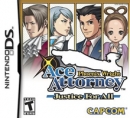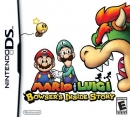| CaptainWorf said: sc94597, that was a very interesting original post and many interesting points were made in the replies both by you and others. You said you didn't have to work as a teen, and that is probably both good and bad. You have been able to achieve, but holding a part-time job as a teen can be a very useful experience. I think that many youths have no role models for the notion that if you hold a lawful job, you will get paid, and if you make a good impression and improve your skills, you can get paid more. The labor force participation rate for the 16-24 age group has declined by over 11% from 1992-2012. As for single payer, the Veterans Administration defeated General Shinseki, who was one of the best generals. There is a high probability the whole system will turn out like that if we do single payer. Please note, I private messaged you. |
I didn't have to work, but when I was between 14-16 I wanted to work so that I had my own money. I had extra time, and could've. The child labor laws in Pennsylvania make it practically impossible to get a job until you are 16 or older. Furthermore, since my area was not a large city, transportation was a limiting factor to any job I would be able to find. After I turned 16, I was invested heavily in high school, studying for SAT's and Subject Tests after school, taking extra courses at the community college, etc to enhance my resume for a decent school. So I didn't really work, mostly out of preference, even though I could've. After my first year of college, I didn't want to return home for the summer and I wanted to find an apartment as the dorms were way too expensive compared to the local housing costs ($1,200/month vs. $350- $500/month). So I got a part time job working at my university. A year after that I worked at Walmart as a cashier for 6 months, three of which were while I was attending classes. And this last summer I worked at Ikea as a cashier. I also tutor online, and make a few extra hundred dollars per month doing that. I've been able to reduce my loans considerably by working part time jobs, and I agree one-hundred percent that they are valuable experiences which will help me even in my field (eventually will get a PhD in Physics, working on BS in Physics/Math and an Econ minor right now.)
I will respond to your PM, thanks! :)


























































